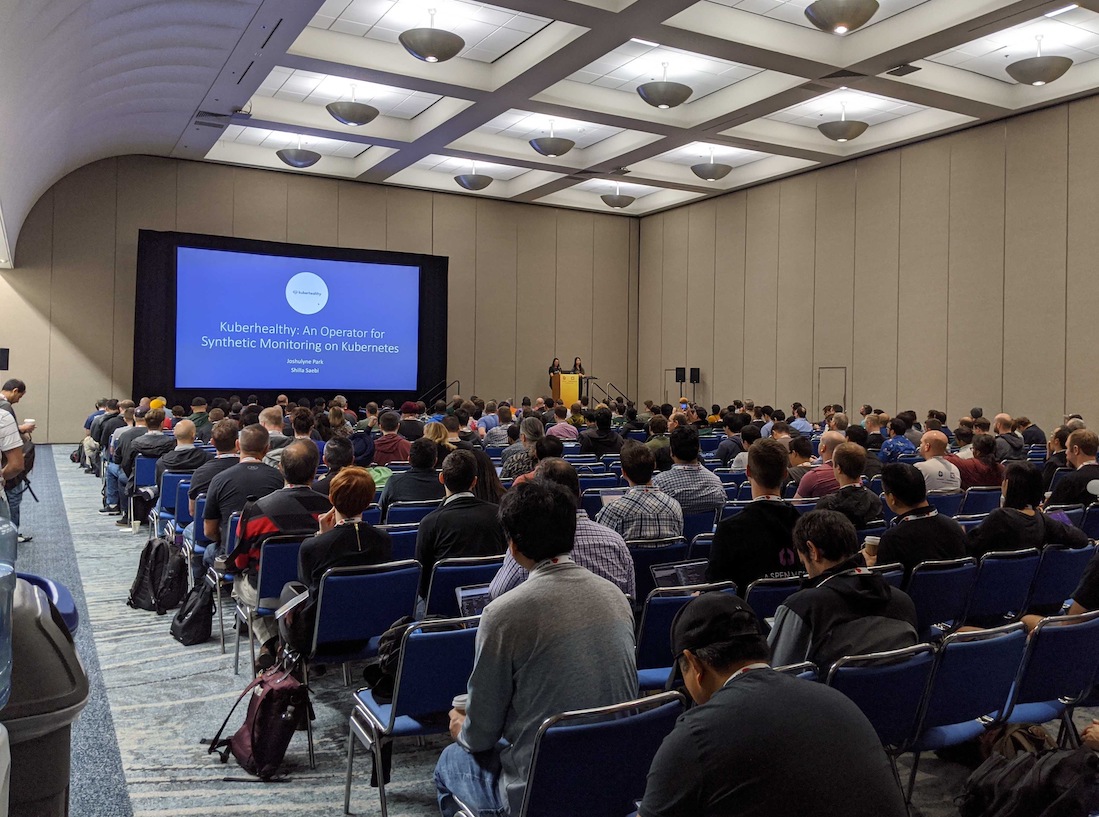A handful of Comcast engineers are behind two open-source projects that were recently accepted as sandbox, or early-stage, projects by the Cloud Native Computing Foundation.
Projects Kuberhealthy and Trickster are both about three years old, said Nithya Ruff, head of Comcast’s Open Source Office, and were created as solutions to make an internal process work more smoothly. Projects accepted into the CNCF are ones that reach a high level of technical maturity, global engagement and collaboration, per the org.
Trickster was developed by James Ranson, a former senior principal cloud architect at Comcast, to help make Prometheus dashboards run smoother and faster; Prometheus is the open-source monitoring and alerting toolkit originally developed by SoundCloud. It was written in Go, and is a reverse proxy cache for the Prometheus HTTP APIv1 that accelerates dashboard rendering times for any series queried from Prometheus.
And Kuberhealthy was initially developed by Eric Greer, a senior principal engineer at Comcast, to help engineering teams better monitor and understand the full picture of their Kubernetes clusters.
“Kuberhealthy runs Daemonset deployment and termination, component health, excessive pod restarts and pod status all as defaults,” Shilla Saebi, program manager of open source at Comcast, wrote in a post about the projects. “This combination of tests gives us the most definitive answer to our original question: ‘Is this cluster healthy?'”
Ruff said that the CNCF committee reviews projects for their relevancy and recently accepted four projects, two from Comcast. In the case of Kuberhealthy and Trickster, the founding engineers were essentially just trying to solve problems for their teams.
“Once they saw it was powerful and effective, they contacted my team and said ‘I think other teams could probably use this project,'” Ruff said of how an open source project usually grows within the company.
Ruff’s Open Source Office team of six helps amplify the projects within the company and within the tech community, hosting webinars, talks or educational sessions about a project and the ways it can be used. When the word spreads, and they learn that companies outside of Comcast have the same problem, “it becomes clear it was meant to be a part of open source,” Ruff said.
The company now has about 200 projects on Github. Ruff said that contributing to the global open source community is essential to Comcast’s success, and said she doesn’t believe there are many innovative companies out there that don’t use or contribute to the global community.
“It has so many positive effects, we feel we are a good citizen of the open source community and we want to sustain it,” Ruff said. “It allows us to collaborate with global communities and it helps us attract really good engineers into the company, and be transparent about the work we do.”
The open source project team named out other employees who contributed to the projects’ success: Joshulyne Park, who maintains the Kuberhealthy project, and Adam Ross and Chris Randles, who reviewed more than 300 PRs and contributed more than 3,000 lines of code to Trickster. The company also acknowledged Julius Volz and Ben Kochie, external project mentors who increased visibility of the project and contributed stability improvements that greatly benefited the community of early adopters of the projects.
“It’s a fantastic feeling for a lot of engineers to see their work in fruition and be recognized in the world,” Ruff said.
Before you go...
To keep our site paywall-free, we’re launching a campaign to raise $25,000 by the end of the year. We believe information about entrepreneurs and tech should be accessible to everyone and your support helps make that happen, because journalism costs money.
Can we count on you? Your contribution to the Technical.ly Journalism Fund is tax-deductible.
Join our growing Slack community
Join 5,000 tech professionals and entrepreneurs in our community Slack today!

The person charged in the UnitedHealthcare CEO shooting had a ton of tech connections

The looming TikTok ban doesn’t strike financial fear into the hearts of creators — it’s community they’re worried about

Where are the country’s most vibrant tech and startup communities?


